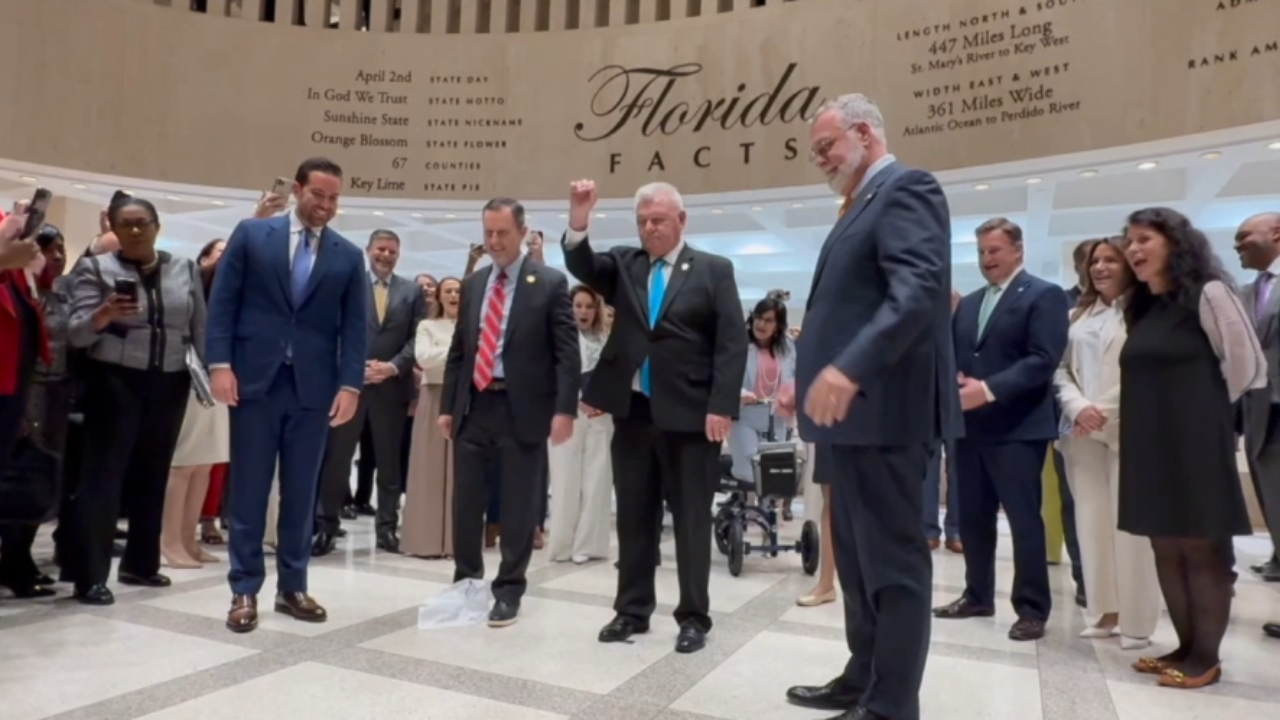TALLAHASSEE, Fla. — After months of waiting, and several committee meetings, the Florida House is offering a slate of ideas for sweeping property tax reform next session, unveiling the proposed constitutional amendments that could reshape how homeowners pay and local governments fund services.
WATCH THE NEW PROPOSALS:
In a memo Thursday, House Speaker Danny Perez (R-Miami) announced eight measures drawn from months of hearings by the Select Committee on Property Taxes. Perez said the intent is to “let the people of Florida decide” which ideas, if any, should make it onto the 2026 ballot.
“If we have faith in the voters to elect us, we should not be afraid to let them be a part of the conversation about the taxes they pay,” Perez wrote. “The House does not need to limit itself in presenting one single plan, but instead allow the people of Florida the ability to choose some, all, or none of the proposals on the 2026 ballot.”
Perez added that all of the measures include language prohibiting cuts to law enforcement and exempting school taxes — which make up roughly 46% of school funding, or about $21 billion statewide.
The resolutions also carry no immediate implementing legislation; lawmakers would decide later how to structure the details based on what voters approve.
The Proposals at a Glance:
Categorical Eliminations:
HJR 201 (Steele): Eliminates non-school property taxes for homesteads entirely.
HJR 203 (Miller): Phases out those same taxes over ten years, with an additional $100,000 exemption added each year.
HJR 205 (Porras): Exempts Florida residents 65 and older from paying non-school property taxes on homesteads.
Additional Exemptions:
HJR 207 (Abbott): Creates a new 25% homestead exemption on non-school taxes — aiding current and first-time homebuyers.
HJR 209 (Busatta): Offers an extra $100,000 exemption to homeowners who carry property insurance, intended to ease overall housing costs.
Reforms:
HJR 211 (Overdorf): Eliminates the cap on “portability,” allowing homeowners to transfer their entire Save Our Homes benefit to a new property, even if it’s of lesser value.
HJR 213 (Griffitts): Adjusts caps on taxable value growth — limiting increases to 3% over three years for
homesteads (currently 3% annually) and 15% over three years for non-homesteads (currently 10% annually).
HB 215 (Albert): Would require a two-thirds vote to raise local millage rates and allow newly married couples to combine their Save Our Homes benefits.
A Long Road to the Ballot:
The measures mark the most detailed property tax package to emerge since the House’s select committee began work this summer.
Co-chaired by Reps. Vicki Lopez (R-Miami) and Toby Overdorf (R-Stuart), the panel has been exploring options from expanded exemptions to value rollbacks.
“Everything is on the table right now,” Overdorf said during hearings in September.
Lopez cautioned that any statewide change must consider Florida’s local diversity.
“In those small counties and in those very small cities that are fiscally constrained already, it’s going to be a challenge,” she said.
If approved by lawmakers, the proposals would need to survive a Florida Supreme Court review and then earn 60% voter support on the November 2026 ballot.
DeSantis and the Politics of Property Taxes:
Governor Ron DeSantis has been one of the loudest voices pressing for reductions, even suggesting a special session if lawmakers can’t reach agreement.
His administration and state CFO’s office have launched “DOGE audits” of local governments to highlight what he calls waste and inefficiency.
“Don’t let anyone tell you that we can’t do anything on property tax,” DeSantis said recently. “They could recalibrate those budgets and just go back to 2022 levels.”
With multiple statewide offices, including governor and CFO, up for election in 2026, property taxes are shaping up as a defining campaign issue.
Democrats Warn of Local Fallout:
House Minority Leader Fentrice Driskell (D-Tampa) has called the Republican plans politically motivated and potentially damaging to local communities.
“The harm that these proposals would cause would not outweigh any potential benefits,” Driskell said in an interview earlier this month. “What firehouse would [DeSantis] close in Tampa? What police station would he close in Orlando? What garbage collection would he stop in South Florida?”
Driskell said the proposals could leave small, rural counties unable to fund basic services.
“We'd basically be putting them in a situation where they would be living in a welfare state,” she warned. "They would be funded by larger counties."
Democrats argue that true affordability relief should target property insurance, healthcare, and overall living costs — not just taxes.
“This all seems to be a distraction,” Driskell said. “We need to focus on real solutions.”
What’s Next:
The House proposals will be assigned to committees in the coming weeks, with debate expected early in the 2026 session.
Perez said the aim is to give Floridians the final word: “The ultimate decision on what should happen with property taxes belongs not with elected officials, but with the people of Florida.”
Share Your Story with Forrest

Capitol Reporter Forrest Saunders is dedicated to sharing your voice with political leaders throughout the state. He works to hold our elected leaders accountable and amplify your concerns. Let Forrest know about the issues you want state leaders to focus on.
.





